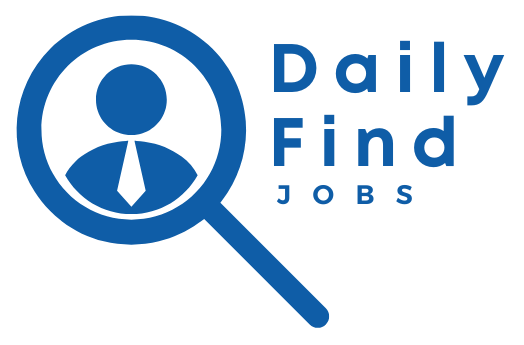Taking a career break can be a transformative experience, offering valuable time to recharge and gain new perspectives. Understanding how to prepare for a career break is crucial to maximize the benefits both personally and professionally. In this guide, we cover the essential steps to ensure your break is as productive and restorative as possible.
Understanding the Benefits of a Career Break
Embarking on a career break can lead to numerous benefits that can enrich your professional and personal life. Taking this time off allows you to recharge, realign your career goals, and gain fresh perspectives on what you truly want from your work life.
Stress Relief is one of the primary benefits. A break provides a well-needed pause from the daily hustle, enabling you to alleviate stress and prevent burnout. This period is an opportunity to focus on personal well-being, which can lead to a more positive and productive work experience once you resume your career.
Personal Growth can be another significant advantage. By stepping out of your regular routine, you gain time to pursue activities that enrich your life, such as traveling, learning new skills, or spending quality time with family and friends. These experiences contribute to a more well-rounded individual and can boost creativity.
Improved Relationships can happen due to the additional time available to nurture personal connections that may have been neglected due to work commitments. This can strengthen your support network, which is invaluable during transitions.
Additionally, New Perspectives can be gained during a career break. Taking time away from work can lead to insights and ideas that may not have emerged amidst the busy work environment. This can be a time for reflection and gaining clarity on your professional goals and aspirations.
Financial Planning for Your Career Break
Taking a career break requires careful financial planning to ensure you maintain stability throughout your time off. First, calculate your current monthly expenses and assess your savings to determine how long you can sustain yourself without a regular income. Creating a detailed budget helps identify non-essential expenses which can be cut down during your break.
Consider having an emergency fund that could cover at least 3 to 6 months of living expenses. This buffer provides peace of mind against unexpected circumstances. If possible, look into alternative income streams, such as freelancing or part-time work, to supplement your savings.
Also, explore different health insurance options to ensure continuous coverage. You might be surprised to learn that some insurers offer affordable short-term plans. Don’t forget to review your retirement savings plan; even though you’re on a break, it’s important to keep your long-term financial goals in check. Investigate if continuing contributions are feasible during your time off.
Moreover, understand any contractual obligations with existing commitments like loans or mortgages. Contact your loan providers to discuss potential deferment options if necessary. Effective planning ensures that financial stress doesn’t overshadow the benefits of your career break, allowing you to focus on personal growth and development.
Building Skills During Your Time Off
Taking time off doesn’t mean pausing your professional growth. In fact, a career break is a perfect opportunity to enhance your skill set. Whether you wish to pivot to a new field or strengthen your existing capabilities, here’s how you can do it effectively.
First, identify the skills you want to develop. Are there areas within your current field you’d like to improve? Or perhaps you’re interested in learning something entirely new? Once you have a clear idea, research online courses or workshops. Platforms like Coursera, edX, and Udacity offer a wide range of subjects from data analysis to creative writing.
Consider taking on volunteer projects that allow you to apply new skills in real-world settings. This not only enriches your learning experience but also enhances your resume. Websites like VolunteerMatch can help you find opportunities that align with your interests and goals.
Networking is equally important. Join professional groups or online forums related to your industry. Participating in discussions or attending webinars can provide insights and keep you engaged while expanding your connections.
Lastly, practice what you learn by working on personal projects. Whether it’s developing a new application, writing articles, or designing a portfolio, putting your skills to use will help solidify your understanding and showcase your strengths.
Staying Connected with Industry Trends
During a career break, it’s crucial to stay updated with the latest developments in your industry. Even if you’re not actively working, being aware of current trends will help you when you decide to re-enter the workforce.
Subscribing to industry newsletters is one effective way to keep your finger on the pulse. These publications often provide insights into new technologies, methodologies, and market shifts that could be relevant to your field.
Additionally, participating in online forums and discussion groups can be immensely beneficial. Platforms like LinkedIn groups or specific forums related to your niche can allow you to engage in discussions, share ideas, and learn from others in your field. This interaction ensures you are aware of what is significant within the industry, allowing you to be better prepared when you decide to return.
Pursuing online courses or attending webinars can also be a strong strategy. These tools offer flexible learning opportunities, helping you gain fresh knowledge and enhance your skills.
If possible, attend industry conferences or meetups. These events are excellent for networking, as they let you connect with professionals and exchange insights on emerging topics.
Reading industry blogs and listening to podcasts can further support your understanding. Many experts share their knowledge through these channels, offering up-to-date information on what’s affecting your sector.
Finally, consider setting up a Google Alert for keywords related to your profession. This way, you’ll receive notifications about news articles and blog posts relevant to your area of expertise.
By proactively engaging with industry trends, you’ll maintain a strong connection with your professional field, ensuring a smoother transition back when you’re ready.
Planning Your Return to the Workforce
Re-entering the workforce after a career break requires strategic planning to ensure a smooth transition. Start by updating your resume and including any relevant experiences or skills gained during your break. Be transparent about your time away, and emphasize any voluntary work or further education.
Next, networking should be a priority. Reach out to former colleagues, attend industry events, and update your professional profiles on platforms like LinkedIn. Networking can open doors to job opportunities and provide insights into current industry trends.
Assessing your skills is another crucial step. Consider the current demands in your industry and identify skill gaps. Enroll in courses or workshops if needed to upskill and stay competitive. Demonstrating a commitment to continuous learning can be a significant advantage during job applications.
Develop a job search strategy. Decide whether you want to resume your previous career path or pivot to a new field. Tailor your applications accordingly, highlighting both relevant past experience and new learnings.
Finally, consider the work-life balance you aim to achieve upon returning. Setting clear boundaries and managing expectations with potential employers will help maintain a healthy equilibrium.


